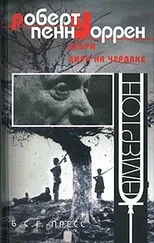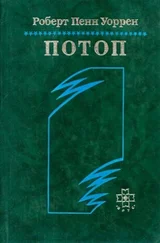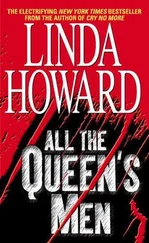Роберт Уоррен - All the king's men
Здесь есть возможность читать онлайн «Роберт Уоррен - All the king's men» весь текст электронной книги совершенно бесплатно (целиком полную версию без сокращений). В некоторых случаях можно слушать аудио, скачать через торрент в формате fb2 и присутствует краткое содержание. Жанр: Современная проза, на английском языке. Описание произведения, (предисловие) а так же отзывы посетителей доступны на портале библиотеки ЛибКат.
- Название:All the king's men
- Автор:
- Жанр:
- Год:неизвестен
- ISBN:нет данных
- Рейтинг книги:4 / 5. Голосов: 1
-
Избранное:Добавить в избранное
- Отзывы:
-
Ваша оценка:
- 80
- 1
- 2
- 3
- 4
- 5
All the king's men: краткое содержание, описание и аннотация
Предлагаем к чтению аннотацию, описание, краткое содержание или предисловие (зависит от того, что написал сам автор книги «All the king's men»). Если вы не нашли необходимую информацию о книге — напишите в комментариях, мы постараемся отыскать её.
All the king's men — читать онлайн бесплатно полную книгу (весь текст) целиком
Ниже представлен текст книги, разбитый по страницам. Система сохранения места последней прочитанной страницы, позволяет с удобством читать онлайн бесплатно книгу «All the king's men», без необходимости каждый раз заново искать на чём Вы остановились. Поставьте закладку, и сможете в любой момент перейти на страницу, на которой закончили чтение.
Интервал:
Закладка:
She just looked at me, still cool, and said, "Jack, I did kiss a man up in Maine. He was a nice boy, Jack, and I liked him a lot and he was fun to be with. But I didn't love him. And if you and I hadn't had that row and I hadn't felt that the world had sort of come to an end and I wouldn't be with you again, I wouldn't have done it. Maybe I wanted to fall in love with him. To fill up the empty place you left, Jackie.–Oh, Jackie, there was a place, an awful big place–" And with a simple unthinking gestured, she laid her right hand on her heart. "But I couldn't," she said. "I couldn't fall in love with him. And I quit kissing him. Even before we made up, you and I." She reached out and laid her right hand on one of my hands, and leaned toward me. "For we did make up, you and I," she asked, "didn't we, Jackie-Bird?" She laughed a quick laugh that welled up in her throat, then asked, "Didn't we, Jackie-Boy? Didn't we? And I'm happy again!"
"Yeah," I said, "we did."
"Aren't you happy?" she asked, leaning.
"Sure," I said, and was as happy, I suppose, as I deserved to be. But the thing was there all the time, breathing back there in the dark of my mind and waiting to pounce. Even though I forgot it was there. Then, the next night when she didn't kiss me in the new way, I felt the thing stir. And the next night. Because she didn't kiss that new way I was even angrier than I had been when she had. So I kissed her the way that man in Maine had done. She drew back from me immediately and said, quite quietly, "I know why you did that."
"You liked it well enough up in Maine," I said.
"Oh, Jackie," she said, "there isn't any place called Maine and never was, there just isn't anything but you and you are all forty-eight states together and I loved you all the time. Now will you be good? And kiss me our way?"
So I did that, but the world is a great snowball rolling downhill and it never rolls uphill to unwind itself back to nothing at all and nonhappening.
Even though the summer just past had not been like the summer before, I went on to State again and got my job hashing and did some newspaper reporting and entered the Law School and loathed it. Meanwhile I wrote letters to Anne at the very refines female college in Virginia, and the capital on which those checks were drawn dwindled and dwindled. Till Christmas, when I came home and Anne came home. I told her I simply loathed the Law School, and expected (and, in a twisted way, wanted) hell to pop. But hell did not pop. She merely reached over and patted my hand. (We were sitting on the couch in the Stanton living room, where we had clutched and clung until we had finally fallen apart from each other, she in a kind of withdrawn melancholy, and I in the fatigue and irritation of desire too long protracted and frustrated.) She patted my hand, and said, "Well, don't study law, then. You don't have to study aw."
"What do you want me to do then?"
"Jackie, I never wanted you to study law. It was your idea."
"Oh, was it?" I asked.
"Yes," she said, and patted my hand again. "Do what you want to, Jackie. I want you to do what you want. And I don't care if you don't make money. I told you long back I'd live on red beans with you."
I got up from the couch. For one reason so she couldn't pat my hand in that way which suddenly reminded me of the way a nurse pats the hand of a patient, a sort of impersonal pat intended to be soothing. I stood well back from her, and spoke firmly. "All right, you'll eat red beans with me. Let's get married. Tomorrow. Tonight. We've fooled around long enough. You say you love me. All right, I love you."
She didn't say anything, but sat there on the couch with her hands lying loose in her lap, and lifted her face, which suddenly was tired and drawn, and looked up at me from eyes which gradually brightened with unshed tears.
"You love me?" I demanded.
She nodded slowly.
"And you know I love you?" I demanded.
She nodded again.
"All right, then?"
"Jack," she said, then stopped for a moment. "Jack, I do love you. I guess I feel sometimes that I might just kiss you and hold you tight and close my eyes and jump off a cliff with you. Or like that time when you dived down to me and we kissed in the water and it seemed like we'd never come up. Do you remember, Jack?"
"Yes," I said.
"I loved you like that then, Jack."
"Now?" I demanded, "what about now?"
"Now, too, Jack, I guess I could do it now, too. But it's different, too."
"Different?"
"Oh, Jack," she exclaimed, and for the first time, at least the first time I ever remembered, made the gesture of lifting her hands to her temples, that gesture to control distraction which was never to become characteristic but which I was to see again. "Oh, Jack," she said again, "things have happened, so much has happened. Since then."
"What has happened?"
"Oh, it's just that getting married isn't like jumping off a cliff. Love isn't either, isn't like jumping off a cliff. Or getting drowned. It's–it's–oh, I don't know how to say it–it's trying to live, it's having a way to live."
"Money," I said, "if it's money you–"
"It's not money," she interrupted, "I don't mean money–oh, Jack, if you only could see what I mean!"
"Well, I'm not going to get a job with Patton or anybody round here. Or have them get me a job. Not even Irwin. I'll get a job, I don't care what kind, but not with them."
"Darling," she said tiredly, "I'm not trying to make you come here. Or get a job with Patton. Or anybody. I want you to do what you want. Just so it is something. Even if you don't make money. I told you I'd live in a shack."
So I went back to the Law School and by dint of consistent effort succeeded in busting out before the end of the year. It took a lot of attention to get busted out, for a man just can't achieve that by the ordinary means at State. He has to work at it. I could have simply resigned, of course, but if you simply drop out or resign, you might be able to come back. So I busted out. Then while I was celebrating my busting out and was pretty sure Anne would be sore and throw me over, I got involved with a pal of mine and two girls and there was a small scandal, which got into the papers. I was an ex-student then, and so the University couldn't do anything about it. Anne didn't do anything either, for I guess I was an ex-Jackie-Bird by that time.
So Anne went her way and I went mine. My way was to work for a newspaper and hang around the lower part of the city and read books on American history. Finally I was taking courses at the University again, just spare time at first, then seriously. I was entering the enchantments of the past. For a while it looked as though Anne and I had made it up, but somehow a gear slipped and it was like before. I didn't finish the Ph. D. So I went back to the _Chronicle__, where I was reported and a damned good one. I even got married. To Lois, who was damned good looking, a lot better looking, I suppose, that Anne, and juicy while Anne was inclined to bone and muscle under flesh. Lois looked edible, and you knew it was tender all the way through, a kind of mystic combination of filet mignon and a Georgia peach aching for the tongue and ready to bleed gold. Lois married me for reasons best known to herself. But one was, I am sure, tat my name was Burden. I am forced to this conclusion by the process of elimination. It could not have been my beauty, grace, charm, wit, intellect, and learning, for, in the first place, my beauty, grace, and charm, were not great, and in the second place, Lois didn't have the slightest interest in wit, intellect, and learning. Even if I had had them. It could not have been my mother's money, for Lois's own widowed mother had plenty of money, which Lois's father had made from a lucky was contract for gravel, a little too late to give those things called advantages to his daughter at her most impressionable age. So it must have been the name of Burden.
Читать дальшеИнтервал:
Закладка:
Похожие книги на «All the king's men»
Представляем Вашему вниманию похожие книги на «All the king's men» списком для выбора. Мы отобрали схожую по названию и смыслу литературу в надежде предоставить читателям больше вариантов отыскать новые, интересные, ещё непрочитанные произведения.
Обсуждение, отзывы о книге «All the king's men» и просто собственные мнения читателей. Оставьте ваши комментарии, напишите, что Вы думаете о произведении, его смысле или главных героях. Укажите что конкретно понравилось, а что нет, и почему Вы так считаете.





![Роберт Уоррен - Рассказы [Компиляция]](/books/419993/robert-uorren-rasskazy-kompilyaciya-thumb.webp)


